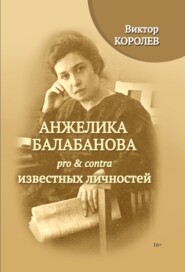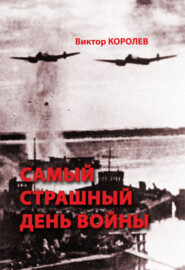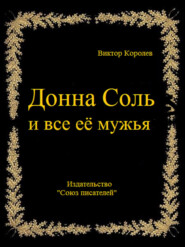По всем вопросам обращайтесь на: info@litportal.ru
(©) 2003-2025.
✖
The Life and Surprizing Adventures of Archibald Kerr, British Diplomat
Настройки чтения
Размер шрифта
Высота строк
Поля
What can you do make for victory?
Before Easter 1910, Archibald Kerr finally said goodbye to Berlin. A decade later, he sadly wrote in his diary: “I think that I did not pay enough attention to official Affairs, I spent too much time on different meetings, and I should have been more serious in Berlin. It’s clear that today I cannot change anything…”
However, the Ministry of foreign Affairs officially stated that Kerr was the most conscientious and hardworking employee while working in Germany. In any case, over the years he has accumulated experience, increased self-esteem and confidence in the right choice of profession, as well as the ability to apply diplomatic charm to the envy of friends and enemies.
His new assignment in Buenos Aires was very short. Kerr didn't even have time to look around and understand his responsibilities. He had come to the endlessly bustling, manyvoiced city, noisily celebrating the centenary of freedom, and at the first opportunity had gone to the shores of La Plata to take a break from the constant noise. He did not succeed. Early in the morning he was awakened by the neighing of a horse and shouts near the tent.
‘Mr. Kerr! I'm looking for Mr. Archibald Kerr!’
He had to get dressed and leave the tent.
‘There's an urgent telegram for you!’
The postman, still on his horse, handed him the yellow paper.
‘Please accept my condolences!’
He put two fingers to the peak of his uniform cap and rode away.
The message from Sydney was short: “Father died on the twenty-second. Please come. The funeral will take place on the twenty-seventh.”
It was a heavy blow. Archie hadn't seen his father in ten years, but he felt his father's concern and pride in his diplomat son. And now his father was gone. Father's gone forever now, and there's nothing you can do.
The Ministry sincerely sympathized and gave additional leave, so that Kerr could remain in Australia until the spring. During this time he tried to calm his mother and did another important thing. A difficult relationship with Australian relatives forced him to change his surname. Since 1911, he officially became known by another name – Archibald John Kerr. With small correction: the first its name of Archibald he always liked much more second. So it goes from the beginning of our story.
In March, Archie Kerr returned to duty. However it was not Argentina. He was assigned to the British mission in Washington. At the time, there were only nine diplomats under the liberal James Bryce, a completely unique personality.
Bryce was in his seventies. He was Scottish, too. And he, too, after the community colleges raised their education in the German and French universities. He and Kerr had a lot in common. And the difference is one – in age.
‘I could adopt you, Archie,’ Bryce said, smiling. ‘But I see my task in having time to convey to you, such an ambitious and talented person, the accumulated knowledge and understanding of life.’
Bryce was an expert in everything. His student works on the history of the Roman Empire received first places at the University. He was a brilliant jurist. By the time he was Kerr's age, He was head of the civil law Department at Oxford. He knew several languages. He traveled a lot, was engaged in mountaineering. He conquered many mountain peaks. And when he came down from Ararat, he claimed to have seen the remains of Noah's ark. No one believed him then, but in vain – it was there, in a completely inaccessible place, a century later the nose of an ancient ship will be seen from an airplane…
‘Would you like to travel with me to Russia, young man? Are you tempted to ride on the Trans-Siberian railway through this huge and mysterious country?’
Archibald didn't know what to say.
‘Maybe some other time.’
‘I hope you'll have the opportunity later. Don't miss it!’
In the eyes of the young diplomat, Bryce was not a boss, he was a real hero. Kerr admired his intelligence and eccentricity, especially his habit of beginning every morning with a dictionary of the country in which he was or where he was going.
‘A diplomat must know foreign languages. Read ten or twenty pages of someone else's dictionary every morning,’ the old Professor advised. ‘Let you remember nothing – but when it is necessary, the brain itself will pull out the right words from the subconscious. To understand someone else's speech is very important for a diplomat.’
One year has passed. James Bryce went to the Far East. Without such a teacher, Kerr was suddenly lonely. Other friends in this small collective at it and did not appear. Everyone now had to work almost for days. Fortunately, it was holiday time, and Kerr left for London.
At last there was his long-awaited meeting with his mother. He wrote letters to her almost daily, worried, anxious to make sure she was well and happy. This love for his mother was celebrated by all who knew Kerr.
One day he went to the Ministry. On the steps of the wide staircase he almost collided with a man in a magnificent dress uniform. His doublet without epaulette was embroidered with gold stitches; a long row of buttons spoke of the high status of an official. The dazzling white stockings were tight, the pantaloons and gloves perfectly white. A sword with an expensive hilt on the left side, sparkling buckles on patent leather shoes. Who is it?
‘Good afternoon, sir.’ Kerr respectfully removed his bowler hat.
The stranger stopped.
‘Archibald! Good to see you, my young friend! How are you? How is your mother?’
Oh, my God! This is Walter Townley, his former superior, who was envoy to Argentina and met Kerr in Buenos Aires. They had not known each other well at the time, but when the telegram came that his father was dead, Townley had helped a great deal to get Archibald to the funeral and to do all the necessary work in far-off Australia.
Even now he was brief and matter-of-fact. Asked directly:
‘I've been appointed envoy to Teheran – would you like to join me?’
Kerr agreed at once, and they went up to the secretariat. Girls for a long time there was not. The mustachioed clerk spoke to Townley with great deference, and asked Kerr to come the next day. Kerr did so.
The clerk did not even rise when Archibald entered the room. Without looking into his eyes, he spoke slowly and even casually:
‘The Minister has the impression that you seem somewhat inclined to change positions too quickly…’
Kerr was furious. How so?! He had only three positions in six years, especially since he left Argentina because of circumstances beyond his control. But he could only sulk and suffer. He must return to Washington. Walter Townley hugged him when he came to say goodbye:
‘Don't worry, Archie. My offer remains in force. Persia will not run away from you.’
Another year passed. In February 1914 he finally became second Secretary and would be transferred to Europe. So Kerr's last peaceful vacation was on a Mediterranean cruise. The news of the war he received in the Chancery of the Embassy in Rome.
No one could understand why the turmoil in the Balkans had so quickly turned into the conflagration of a world war. And more than once Kerr had to remember that night with Princess Sophie, her whisper:
‘My Brother Wilhelm's malice has no bounds. Believe, soon he will bring Germany to a terrible war with all, including England.’
At all intersections hung posters “What can you do make for victory?” It seemed to Kerr that the soldier with the rifle asked him personally: “Have you already signed up as a volunteer?” Right on the streets were opened points where they recorded those wishing to fight. Dozens of men stood in front of the tables. Also Robin, Kerr's older brother, wrote that he had enlisted as a captain in the 7th battalion of the Scottish Chasseurs. That was the last straw. Archibald decided: I should be with them, military interpreters are very necessary, since so many countries are involved in the war.
The military attache in Rome wrote a petition to the Foreign Office on his behalf, but the Ministry said there was no clear rules yet on which diplomats could enlist and which could not; if the Ambassador dispensed with a second Secretary, there was a chance. The Ambassador replied harshly:
‘Our Embassy is understaffed. Later, you'll thank me for keeping you alive. The only thing I can concede – I will agree in your transfer to another country…’
Kerr did not accuse the chief of cowardice. He just submitted his resignation. However, the Foreign Office was not so easy to beat. It was unclear why they clung to him, but it was said that if he resigned, the Ministry would see to it that he did not go to the front, and ensure that he would not be taken into the army. It was a dead end. It remained to agree to an Embassy in Teheran.
Chapter 5
“The West remained a stranger,East is not my East…”
Archibald wrote bitterly to his mother: “Appointed to Teheran. Accepted under pressure.” The way the Ministry had treated him had hurt Kerr deeply. He felt hurt, betrayed.
In this black mood he returned to London. He was lucky to have met old friends, to have been invited to dinner at the Admiralty, where he told the first Lord Winston Churchill, over a cigar, of his desire to fight. He promised to do what he could. But to promise – not to marry, nothing that did not. Kerr must go to Teheran.
He reached Persia by circuitous routes, through several countries. Walter Townley, noticeably older, was cordial and brief, and laid out his cards at once:
‘Officially, Persia is neutral. But while there is no change on the Western front, a major fire is breaking out here in ancient Mesopotamia. Turkey presses from all sides, Russia dreams of seizing the Straits, the local tribes are bought by German spies, and the Teheran government is helpless. We're sitting on a powder keg. So get down to business with your sleeves rolled up.’











